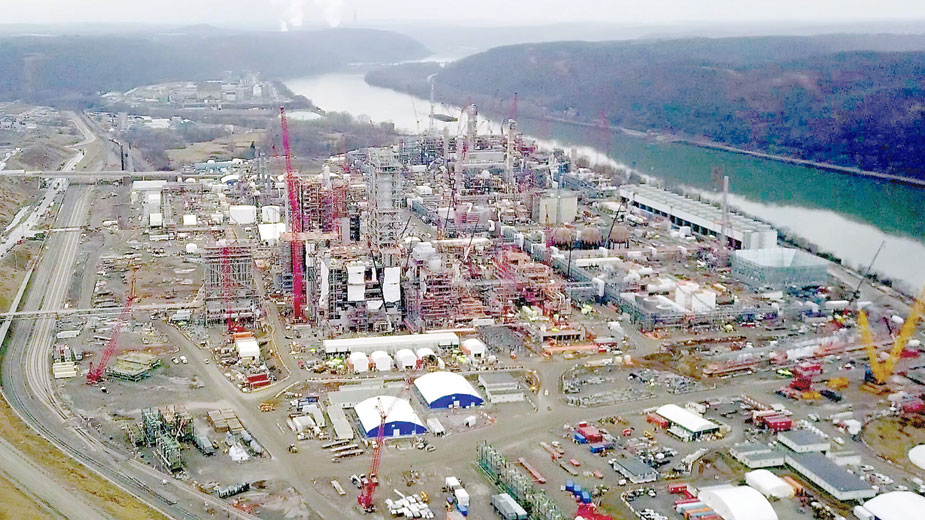YOUNGSTOWN, Ohio — A report released Wednesday by the Ohio River Valley Institute says that changing market forces are likely to impede the growth of the petrochemicals industry across Appalachia.
The report, “Poor Economics for Virgin Plastics: Petrochemicals Will Not Provide Sustainable Business Opportunities in Appalachia,” points to several factors that will hamper the expansion and development of new petrochemical complexes across the region.
Among these are environmental concerns from consumers and investors over pollution caused by petrochemicals such as polyethylene – the core feedstock produced by ethane “cracker” plants.
Royal Dutch Shell is in the process of constructing a $6 billion petrochemicals facility along the Ohio River near Monaca, Pa. A second plant along the river in Belmont County, Ohio, is under consideration by Thailand-based PTT Global, but plans for that project have not moved forward.
The Shell project has created nearly 10,000 construction jobs since work began four years ago. Once completed, the petrochemicals complex is likely to employ more than 500. The ethane cracker produces plastic polyethylene pellets that are used in countless consumer products.
Yet, “the long-term financial future for virgin plastics is poor,” said Kathy Hipple, one of the study’s authors. “The oil and gas industry, particularly natural-gas producers in Appalachia that have struggled for a decade, have ample reasons to support a petrochemical build out. But that should not dictate what is best for the region and its citizens.”
Others refute the report.
“No one is surprised that this anti-oil and gas industry group released yet another so called report saying disparaging things about the industry,” Mike Chadsey, spokesman for the Ohio Oil and Gas Association said in a statement. “While flipping through their document, it is clear that they only say no, no to oil and gas and no to petrochemicals and no to plastics, yet do not offer another alternative. No is not an energy policy. On the other hand, the oil and gas industry continues to take a more positive approach to the valley, yes to jobs, yes to investments and yes to continuing to make this a great place to live, work and raise a family.”
According to a study from JobsOhio, Ohio ranks No. 1 in plastics and polymer output and the top consumer of polyolefin in the Midwest.
The report emphasizes that the Appalachian feedstock pool is limited, and a tighter ethane market and producers’ ability to access export markets via expanded capacity at Marcus Hook will likely push regional ethane prices too high to for new ethane crackers to be competitive.
Moreover, the report noted that China, once the primary importer of U.S. ethylene, is now leveraging tariffs and making it difficult for producers to export to that country. Instead, China is racing toward supply self-sufficiency. “Accelerating overseas capacity additions and lower-than-expected Asian import demand could create a significant overhang of U.S. capacity,” the report notes.
As such, the report states that prospective investors have been hesitant to fund major new projects, since expansion in the Ohio River Valley and Appalachia could result in stranded assets.
“Over the past decade, it might have made economic sense to build out the domestic petrochemical industry,” the report states. “This is no longer the case. Between China’s 2017 ban on imports of plastic waste and intensifying pressure to replace difficult-to-recycle plastics with environmentally friendly alternatives, the economic rationale for expanding the virgin plastics industry no longer exists.”
Pictured: Royal Dutch Shell is in the process of constructing a $6 billion petrochemicals facility along the Ohio River near Monaca, Pa.
